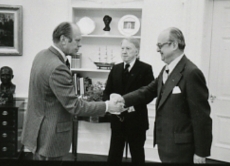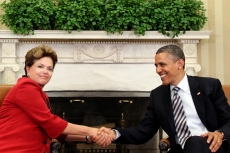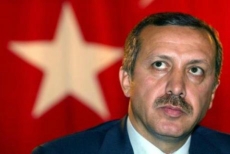The CPD Blog is intended to stimulate dialog among scholars and practitioners from around the world in the public diplomacy sphere. The opinions represented here are the authors' own and do not necessarily reflect CPD's views. For blogger guidelines, click here.

Professor Nicholas J. Cull remembers Walter R. Roberts, who passed away on June 29, 2014.

How Brazil is using the World Cup to achieve nation branding and diplomatic objectives.

Some observers say U.S. President Barack Obama is failing to capitalize on the free kick for soccer diplomacy.
China and Russia are fighting a heated war with the United States.

The complex allegiances of Steven Beitashour, the Iranian team's American player.

Internet governance: a prime example of public diplomacy in action

Immigration practitioner Nicholas Dynon explores how visa policies can either boost or threaten a nation's public diplomacy strategy.

On the implications of the Turkish Prime Minister's recent statement.
Pages
Visit CPD's Online Library
Explore CPD's vast online database featuring the latest books, articles, speeches and information on international organizations dedicated to public diplomacy.
POPULAR ARTICLES
-
January 29
-
January 20
-
January 28
-
January 2
-
January 8
Featured Blogger
Join the Conversation
Interested in contributing to the CPD Blog? We welcome your posts. Read our guidelines and find out how you can submit blogs and photo essays >.








